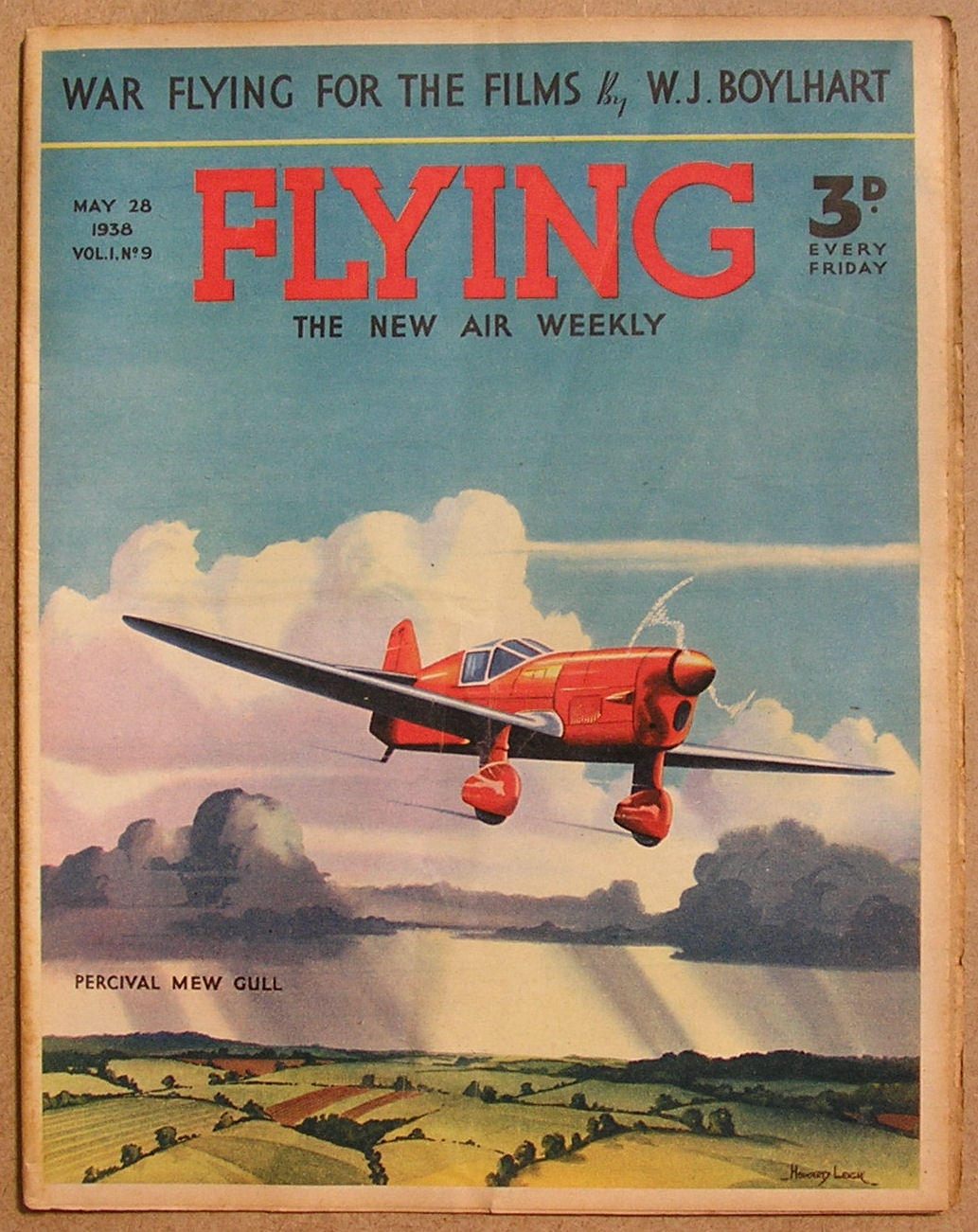Heroes of the Air: Major L.G. Hawker
WHEN Flying, the new  weekly paper of all things aviation, started up in England in 1938, amongst the articles and stories and photo features was an illustrative feature called “Heroes of the Air.” It was a full page illustration by S. Drigin of the events surrounding how the pictured Ace got their Victoria Cross along with a brief explanatory note.
weekly paper of all things aviation, started up in England in 1938, amongst the articles and stories and photo features was an illustrative feature called “Heroes of the Air.” It was a full page illustration by S. Drigin of the events surrounding how the pictured Ace got their Victoria Cross along with a brief explanatory note.
Russian born Serge Drigin became a successful illustrator in the UK in the 1920s with his work regularly appearing in such British magazines as The Detective Magazine, Modern Boy and Chums. He is probably best known for his startling covers for Scoops, Air Stories, War Stories, Fantasy and others in the 30s.
From the 28 May 1938 issue of Flying:
MAJOR L. G. HAWKER WINNING THE VICTORIA CROSS OVER THE GERMAN LINES, JULY 25, 1915
IT WAS on July 25, 1915, that Major Lanoe George Hawker was on reconnaissance over enemy territory. He was flying a Bristol Scout when he saw a German two-seater. He at once engaged it with such fury that it turned tail and fled. Continuing on his way, he encountered another two-seater. This time he was more lucky, for he sent his opponent down out of control. His third victory that day over yet another two-seater, was gained on the way home. It was almost dark at the time and the German machine must have presented a grim picture as it spun down in flames. These three successes were all the more surprising because Major Hawker, at that time a Captain, was armed only with a French cavalry carbine, while his opponents were armed with machine-guns. For his gallantry on that day he was awarded the Victoria Cross. Notification was made on the 24th of August in the London Gazette, for “ most conspicuous bravery and very great ability on the 25th July, 1915.†This fearless airman finally fell to the guns of Richthofen, but only after a long and bitter engagement which in the end was decided by the German’s superior equipment—as Richthofen himself admitted.





